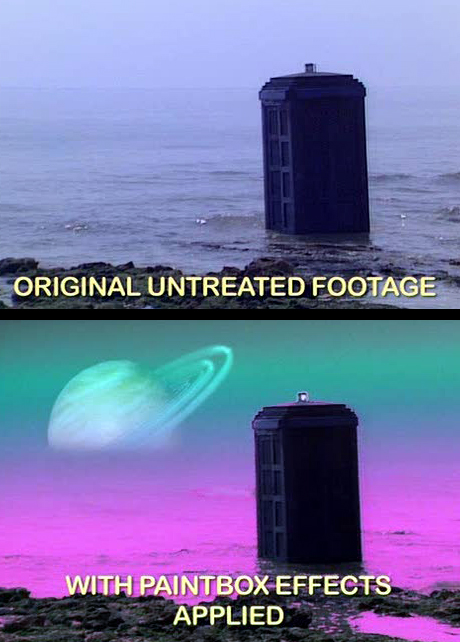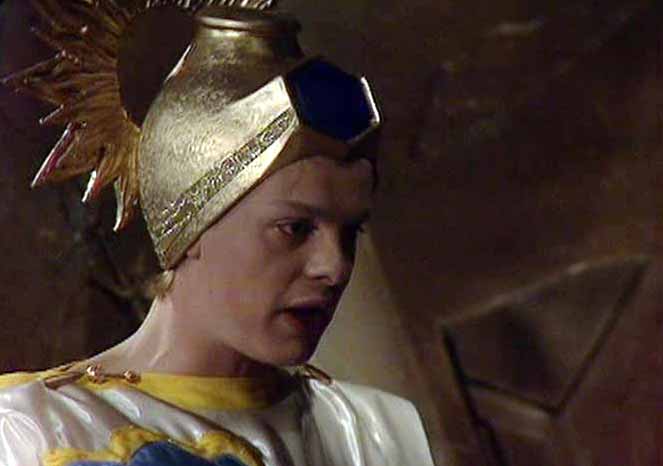Transmat:Doctor Who: Difference between revisions
No edit summary |
Eyacorkett (talk | contribs) mNo edit summary |
||
| (53 intermediate revisions by 8 users not shown) | |||
| Line 1: | Line 1: | ||
__NOTOC__ | __NOTOC__ | ||
{{template:transmat:{{PAGENAME}}}} | {{template:transmat:{{PAGENAME}}}} | ||
<div | <div id="tr-box-container" style="width:98%"> | ||
<div id="tr-box-container" class="tr-box-cols" style=margin-top:40px> | <div id="tr-box-container" class="tr-box-cols" style=margin-top:40px> | ||
<div class="tr-box one"> | <div class="tr-box one"> | ||
{{thead|The women who gave ''Doctor Who'' back to us}} | {{thead|The women who gave ''Doctor Who'' back to us}} | ||
[[file: | [[file:JaneTranter.jpg|center|link=http://tardis.wikia.com/wiki/Transmat:Doctor_Who?file=David_Tennant_interviews_Doctor_Who_Producers_-_Doctor_Who_Confidential_-_BBC]] | ||
{{tcap|Click for video}} | |||
Think ''Doctor Who'' is just for boys? Don't you believe it. Not only was the show's [[Verity Lambert|very first producer]] a woman, but it would never have come back without the fierce advocacy of '''[[Jane Tranter]]''' and '''[[Julie Gardner]]'''. Considering her importance to ''Doctor Who'' it's somewhat ironic that Tranter's only on-screen ''credits'' are for ''[[Torchwood: Miracle Day]]''. But Gardner, her "partner in crime", is tied only with [[Russell T Davies]] as the most prolific producer in ''[[Doctor Who]]'' history. | Think ''Doctor Who'' is just for boys? Don't you believe it. Not only was the show's [[Verity Lambert|very first producer]] a woman, but it would never have come back without the fierce advocacy of '''[[Jane Tranter]]''' and '''[[Julie Gardner]]'''. Considering her importance to ''Doctor Who'' it's somewhat ironic that Tranter's only on-screen ''credits'' are for ''[[Torchwood: Miracle Day]]''. But Gardner, her "partner in crime", is tied only with [[Russell T Davies]] as the most prolific producer in ''[[Doctor Who]]'' history. | ||
</div> | </div> | ||
<div class="tr-box | <div class="tr-box two"> | ||
{{thead|Industrial action}} | {{thead|Industrial action}} | ||
[[File:Paintbox.jpg|link=http://tardis.wikia.com/wiki/Transmat:Doctor_Who?file=BBC%2527s_Historic_Mainframe_Arrives%2521%2521_%2528Quantel_Paintbox_DPB_7000%2529_This_created_many_80s_programs%2521%2521]] | |||
{{tcap|Click for a video of a [[21st century]] geek as he takes delivery of one of the two Paintboxes used by the BBC in the 1980s}} | |||
The '''[[Quantel Paintbox]]''' was a graphics workstation that allowed ''[[Doctor Who]]'' to have a primitive form of [[colourist|colour grading]] in the [[1980s]]. To find out more about the "business of show", go to '''[[:category:production information]]''', where you can read about [[colour separation overlay]], [[low loader]]s, [[telerecording]]s, [[vidFIRE]], [[rostrum camera]]s, [[2" quad]] tape, [[Ealing Studios]] and tons more.</div> | The '''[[Quantel Paintbox]]''' was a graphics workstation that allowed ''[[Doctor Who]]'' to have a primitive form of [[colourist|colour grading]] in the [[1980s]]. To find out more about the "business of show", go to '''[[:category:production information]]''', where you can read about [[colour separation overlay]], [[low loader]]s, [[telerecording]]s, [[vidFIRE]], [[rostrum camera]]s, [[2" quad]] tape, [[Ealing Studios]] and tons more.</div> | ||
<div class="tr-box | <div class="tr-box one"> | ||
{{thead|Surprising guest star}} | {{thead|Surprising guest star}} | ||
{{surprising guest}} | |||
</div> | </div> | ||
<div class="tr-box | <div class="tr-box two"> | ||
{{thead|Ex-Doctors never die, they just make audios}} | {{thead|Ex-Doctors never die, they just make audios}} | ||
The careers of the [[Fifth Doctor|Fifth]], [[Sixth Doctor|Sixth]], [[Seventh Doctor|Seventh]] and [[Eighth Doctor]]s are '''significantly''' longer [[Big Finish Doctor Who audio stories|in audio]] than on television. Check out their latest works at '''[[:category:{{CURRENTYEAR}} audio stories]]''' | The careers of the [[Fifth Doctor|Fifth]], [[Sixth Doctor|Sixth]], [[Seventh Doctor|Seventh]] and [[Eighth Doctor]]s are '''significantly''' longer [[Big Finish Doctor Who audio stories|in audio]] than on television. Check out their latest works at '''[[:category:{{CURRENTYEAR}} audio stories]]'''. | ||
</div> | </div> | ||
<div class="tr-box | <div class="tr-box one"> | ||
{{thead|The relevance of comics}} | {{thead|The relevance of comics}} | ||
Officially, only ''[[The Lodger (TV story)|The Lodger]]'' has been explicitly adapted from a comic strip — also called ''[[The Lodger (comic story)|The Lodger]]''. | Officially, only ''[[The Lodger (TV story)|The Lodger]]'' has been explicitly adapted from a comic strip — also called ''[[The Lodger (comic story)|The Lodger]]''. | ||
[[File:10MickeyFootball. | [[File:10MickeyFootball.jpg|center|link=http://tardis.wikia.com/wiki/Transmat:Doctor_Who?file=Craig_asks_The_Doctor_to_leave_-_Doctor_Who_-_BBC]] | ||
However, several stories have clearly taken material from comic strips — often those in ''[[Doctor Who Magazine]]''. ''[[The Shakespeare Code (TV story)|The Shakespeare Code]]'' contains a good amount of material from ''[[A Groatsworth of Wit (comic story)|A Groatsworth of Wit]]'', and the notion of the Doctor absorbing the [[time vortex]] in order to spare a [[companion]] was explored in both ''[[The Parting of the Ways (TV story)|The Parting of the Ways]]'' and ''[[The Flood (comic story)|The Flood]]''. | However, several stories have clearly taken material from comic strips — often those in ''[[Doctor Who Magazine]]''. ''[[The Shakespeare Code (TV story)|The Shakespeare Code]]'' contains a good amount of material from ''[[A Groatsworth of Wit (comic story)|A Groatsworth of Wit]]'', and the notion of the Doctor absorbing the [[time vortex]] in order to spare a [[companion]] was explored in both ''[[The Parting of the Ways (TV story)|The Parting of the Ways]]'' and ''[[The Flood (comic story)|The Flood]]''. | ||
</div> | </div> | ||
<div class="tr-box two"> | <div class="tr-box two"> | ||
{{thead|The first of the "money men"}} | {{thead|The first of the "money men"}} | ||
'''[[Donald Baverstock]]''' was the [[British Broadcasting Corporation|BBC]] executive who set the the wheels in motion that eventually led to the creation of ''[[Doctor Who]]''. Essentially the original commissioner of the programme, he hired [[Sydney Newman]] and later imposed a sense of financial responsibility upon [[producer]] [[Verity Lambert]]. </div> | '''[[Donald Baverstock]]''' was the [[British Broadcasting Corporation|BBC]] executive who set the the wheels in motion that eventually led to the creation of ''[[Doctor Who]]''. Essentially the original commissioner of the programme, he hired [[Sydney Newman]] and later imposed a sense of financial responsibility upon [[producer]] [[Verity Lambert]]. | ||
But Baverstock wasn't the only '''[[:category:BBC executives|BBC executive]]''' to have a profound impact on the development of ''Doctor Who''. Make sure you read about [[Lorraine Heggessey]], [[Mark Thompson]], [[Danny Cohen]], [[George Entwistle]], [[Tony Hall]], [[Shaun Sutton]], [[Sydney Newman]] and others. </div> | |||
<div class="tr-box two"> | |||
{{thead|Things released on [[{{CURRENTDAY}} {{CURRENTMONTHNAME}} (releases)|{{CURRENTDAY}} {{CURRENTMONTHNAME}}]] }}{{:{{CURRENTDAY}} {{CURRENTMONTHNAME}} (releases)}} | |||
</div> | |||
<div class="tr-box one"> | <div class="tr-box one"> | ||
{{thead| | {{thead|Did you know…}} | ||
{{Doctor Who Wiki/DYK}} | |||
</div> | |||
<div class="tr-box three"> | |||
{{thead|[[{{CURRENTDAY}} {{CURRENTMONTHNAME}} (people)|{{CURRENTDAY}} {{CURRENTMONTHNAME}}]] births and deaths }}{{:{{CURRENTDAY}} {{CURRENTMONTHNAME}} (people)}} | |||
</div> | </div> | ||
{{#ifexpr: {{PAGESIZE:{{CURRENTDAY}} {{CURRENTMONTHNAME}} (production)|R}} < 440|| | |||
<div class="tr-box two"> | <div class="tr-box two"> | ||
{{thead| | {{thead|Production history for [[{{CURRENTDAY}} {{CURRENTMONTHNAME}} (production)|{{CURRENTDAY}} {{CURRENTMONTHNAME}}]] }}{{:{{CURRENTDAY}} {{CURRENTMONTHNAME}} (production)}} | ||
</div>}} | |||
</div> | </div> | ||
</div> | </div> | ||
{{reflist}} | {{reflist|2}} | ||
{{cache clearer}} | |||
Latest revision as of 08:24, 14 July 2024
The Caves of Androzani was the final televised story to feature Peter Davison as the Fifth Doctor, who had decided to end his tenure on Doctor Who at a three-year milestone after taking advice from former lead Patrick Troughton. As such, it depicted the regeneration of the Fifth Doctor into the Sixth Doctor, played by incoming actor Colin Baker. The story is often cited with high regard for its dramatic elements, unusually action-heavy plot, and the dynamic style of its scenes, which were directed by Graeme Harper in his first credited instance as episode director, which broke free from the less engaged atmosphere of other classic stories. The Caves of Androzani is famous for topping a Doctor Who Magazine poll in 2009 that asked readers to vote for, the single best televised story at the time. Dubiously enough, the story that came directly after this one, TV: The Twin Dilemma, crashed to the bottom of the list as the lowest-regarded of all stories ever televised at the time.
Think Doctor Who is just for boys? Don't you believe it. Not only was the show's very first producer a woman, but it would never have come back without the fierce advocacy of Jane Tranter and Julie Gardner. Considering her importance to Doctor Who it's somewhat ironic that Tranter's only on-screen credits are for Torchwood: Miracle Day. But Gardner, her "partner in crime", is tied only with Russell T Davies as the most prolific producer in Doctor Who history.
The careers of the Fifth, Sixth, Seventh and Eighth Doctors are significantly longer in audio than on television. Check out their latest works at category:2024 audio stories.
Officially, only The Lodger has been explicitly adapted from a comic strip — also called The Lodger.
However, several stories have clearly taken material from comic strips — often those in Doctor Who Magazine. The Shakespeare Code contains a good amount of material from A Groatsworth of Wit, and the notion of the Doctor absorbing the time vortex in order to spare a companion was explored in both The Parting of the Ways and The Flood.
Donald Baverstock was the BBC executive who set the the wheels in motion that eventually led to the creation of Doctor Who. Essentially the original commissioner of the programme, he hired Sydney Newman and later imposed a sense of financial responsibility upon producer Verity Lambert.
But Baverstock wasn't the only BBC executive to have a profound impact on the development of Doctor Who. Make sure you read about Lorraine Heggessey, Mark Thompson, Danny Cohen, George Entwistle, Tony Hall, Shaun Sutton, Sydney Newman and others.- 1966
- Episode one of The Power of the Daleks premiered on BBC1.
- Part two of the TV Comic story The Galaxy Games was published.
- 1977
- Part two of Image of the Fendahl premiered on BBC1.
- Part four of the TV Comic story The Devil's Mouth was published.
- 1981 - "The Firemaker" was repeated on BBC2.
- 1993 - Bigger Inside Than Out premiered on BBC One.
- 2001
- The Adventuress of Henrietta Street and Instruments of Darkness were published by BBC Books.
- Colony in Space and The Time Monster were released together in a VHS tin set.
- 2006 - Cyberwoman premiered on BBC Three.
- 2007
- Part two of Whatever Happened to Sarah Jane? premiered on CBBC.
- The Infinite Quest was released in its entirety on Region 2 DVD.
- The audio version of The Curse of Peladon, audiobooks of Doctor Who and the Dinosaur Invasion and Doctor Who and the Giant Robot, and The Sarah Jane Adventures audio stories The Glittering Storm and The Thirteenth Stone were released by BBC Audio.
- The CD Doctor Who - Series 3 was released by Silva Screen.
- 2009
- Part one of The Eternity Trap premiered on CBBC.
- The Circus of Doom was released by AudioGO.
- The novelisation of The Wedding of Sarah Jane Smith was published by Penguin Character Books.
- The audiobook of Doctor Who and the Dalek Invasion of Earth was released by BBC Audio.
- DWA 140 was published by BBC Magazines.
- 2010 - Short Trips - Volume I was released by Big Finish Productions.
- 2012 - Destiny of the Daleks was released by BBC Audio.
- 2014
- The Sixth Doctor Sourcebook was published by Cubicle Seven.
- The Tenth Doctor #5 was published by Titan Comics.
- The Tenth Doctor #4 was published digitally by Titan Comics.
- DWA 358 was published by Immediate Media Company London Limited.
- 2015
- Forgotten Lives was released by Big Finish.
- The Deep Time audiobook was released by BBC Audio.
- DWA15 8 was published by Panini Comics.
- DWFC 58 was published by Eaglemoss Collections.
- 2016 - Co-Owner of a Lonely Heart premiered on BBC Three.
- 2019 - The Short Trips audio story Hall of the Ten Thousand was released by Big Finish.
- 2020
- Daleks Destroy: The Secret Invasion & Other Stories and the re-release of The Lost TV Episodes - Collection Four were released by BBC Audio.
- I Am The Master: Legends of the Renegade Time Lord and Adventures in Lockdown were published by BBC Books.
- Time Traveller's Diary was published by BBC Children's Books.
- Listen to the voice of your Master! was released by Big Finish.
- ... that Arianna Lago won a Visual Effects Society award — along with Simon Wicker, Charlie Bennett and Tim Barter — for her work on the matte paintings seen in Silence in the Library?
- ... that Horatio Nelson was someone whose historic deathdate the Second Doctor actively tried to change? (DAN: H.M.S. TARDIS)
- ... that the Battle of Monte Cassino ended only about a month before the Fourth Doctor and Sarah Jane Smith arrived in World War II Italy? (COMIC: Treasure Trail)
- ... that the Second Doctor, Ben, Polly and Jamie were almost fed to sharks as a sacrifice to Amdo? (TV: The Underwater Menace)
- ... that the Terpsivores were a race of massive centipedes who powered their spaceships by dancing? (COMIC: Death Disco)
- 1918 - Actor Alan Tilvern was born.[1]
- 1927 - Actor Kenneth Waller was born.[2]
- 1953 - Writer Malcolm Kohll was born.[3]
- 1970 - Actor Tamzin Outhwaite was born.[4]
- 1971 - Actor Chris Addison was born.[5]
- 1979 - Actor Liz White was born.[6]
- 1983 - Actor Andrew Hayden-Smith was born.[7]
- 1993 - Actor Michael Bilton died.[8]
- 2003 - Actor Brian McDermott died.[9]
- 2006 - Actor R.J. Bell died.[10]
- 2016 - Actor John Carson died.[11]
- 2017 - Actor John Bown died.[12]
- 2020
- Actor Timothy Craven died.[13]
- Actor Geoffrey Palmer died.[14]
- 2022 - Producer Muirinn Lane Kelly died.[15]
- 1965 - "Devil's Planet" was recorded at BBC Television Centre Studio 3. (TCH 6)
- 1966 - Episode three of The Power of the Daleks was recorded at Riverside Studios 1. (TCH 9)
- 1967 - Location filming for The Enemy of the World began at Climping Beach. (TCH 11)
- 1969 - Location filming for Spearhead from Space took place. (REF: Doctor Who The Handbook: The Third Doctor)
- 1976 - Pre-filming for The Robots of Death took place at Ealing Studios. (REF: Doctor Who The Handbook: The Fourth Doctor)
- 1978 - Studio filming for The Armageddon Factor took place at BBC Television Centre studio 3. (REF: Doctor Who The Handbook: The Fourth Doctor)
- 1979 - Studio filming for Shada took place at BBC Television Centre studio 3. Prematurely, this concluded production on the story. Further studio filming was planned for later in the month and the beginning of December, but industrial action prevented these recording sessions from taking place, leaving the story incomplete. (REF: Doctor Who The Handbook: The Fourth Doctor)
- 1980 - Studio filming for The Keeper of Traken took place at BBC Television Centre studio 6. (REF: Doctor Who The Handbook: The Fourth Doctor)
- 1998 - Big Finish's Bernice Summerfield audio stories Walking to Babylon and Birthright were recorded. These were based on the two novels of the same name.
- 2008 - The Big Finish audio story The Magic Mousetrap was recorded at the Moat Studios.
- 2009 - Big Finish's audio adaptation of the unproduced TV story Point of Entry was recorded at the Moat Studios.
- 2013 - The Big Finish audio story The Labyrinth of Buda Castle was recorded.
- 2018 - Big Finish's Rose Tyler audio drama anthology The Dimension Cannon was recorded.
- 2021 - Big Finish's audio anthology Hidden Depths was recorded.




